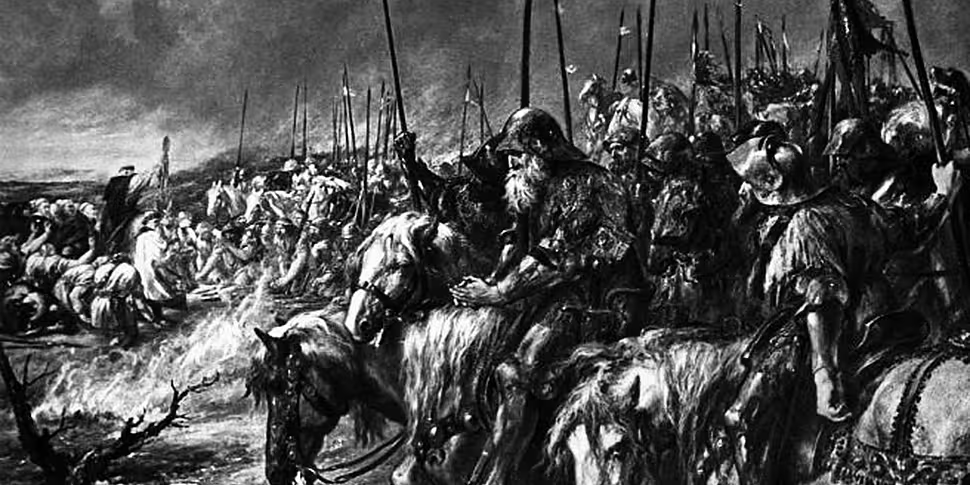And Crispin Crispian shall ne'er go by
From this day to the ending of the world,
But we in it shall be remember'd, —
We few, we happy few, we band of brothers.
For he today that sheds his blood with me,
Shall be my brother
- King Henry in Shakespeare's Henry V, Act IV, scene iii
This account of Henry’s speech to his troops on the eve of the Battle of Agincourt has become synonymous with soldiering. The reliance on one another and the shared experience of war makes brothers of a king and his subjects. One which the outside world cannot fathom. These ideas of a military brotherhood continue to this day.
Agincourt: Great Battle Series
The inspiration for Shakespeare’s speech, the Battle of Agincourt is one of the most remembered moments from the Middle Ages. One of the great underdog stories in history it saw an English army take on a much larger French force-by some accounts six times their number. The French too had far more knights in their ranks while Henry’s force was predominantly made up of the common English archer.
By the end of the day thousands of French dead littered the field while the English force stood exhausted but largely unscathed. This single battle was one of the most influential in the Hundred Years War and the Middle Ages. Massive swathes of the French nobility were wiped out and the English made massive gains in France, but most importantly the day had been carried by lowly archers. Armour and status had offered scant protection against the clouds of arrows. Warfare was changing.
In Agincourt, published in time for the 600th anniversary of the battle, Anne Curry explores the events of this fateful day and the stories that surround it. She looks how Henry was able to pull off such an astounding victory, his influential presence, the decision to execute thousands of French prisoners, and the impact this battle had on history. A great read for anyone interested in the history of the Middle Ages and the myths than can arise from war.
Men at War: What Fiction Tells Us About Conflict from the Iliad to Catch-22
Shakespeare is just one of hundreds, if not thousands, of authors who have written about war and soldiering. With its natural tension and tales of heroism and woe, war lends itself very well to the narrative form. It’s not surprising then that many of the best works of fiction use it as a backdrop, from Homer’s Iliad to the 2014 Booker Prize winner The Narrow Road to the Deep North.
These fictional accounts of factual wars do, however, run the risk of muddying the historical waters. Shakespeare’s Henry V, for example, portrays the titular king into an orator par excellence, a battlefield hero, and a champion underdog. Though much of this is true you can be sure Shakespeare, and those other great fictional chroniclers of war, wouldn’t let the truth get in the way of a good story.
The truth isn’t really the focus of Christopher Coker’s, Men of War. Rather he looks at the vast history of fictional war writing and how it has captured the essence and experience of war, and built up our popular perception of it. While historians are busy getting the facts and figures right writers are free to breath life into the conflicts. In this book Coker explores how these authors, from Homer and Virgil to Tolstoy and Heller, have brought the world of war to life and influenced our perceptions of it.
Men of War is a great addition to the bookshelf of anyone interested in the popular perceptions of war and how they were shaped.









